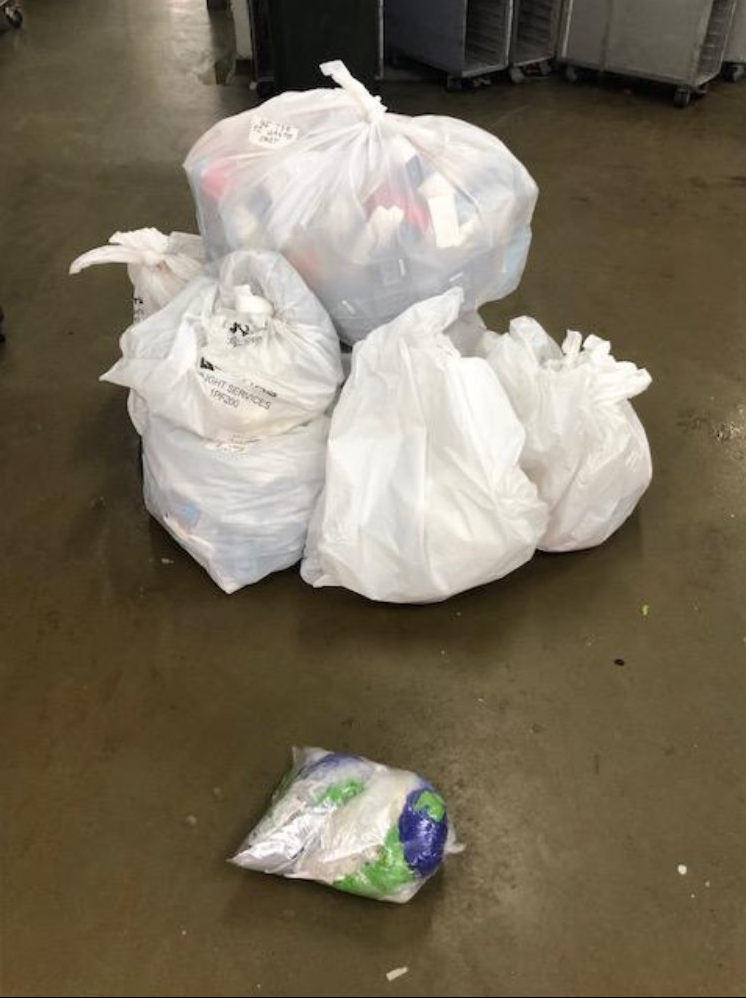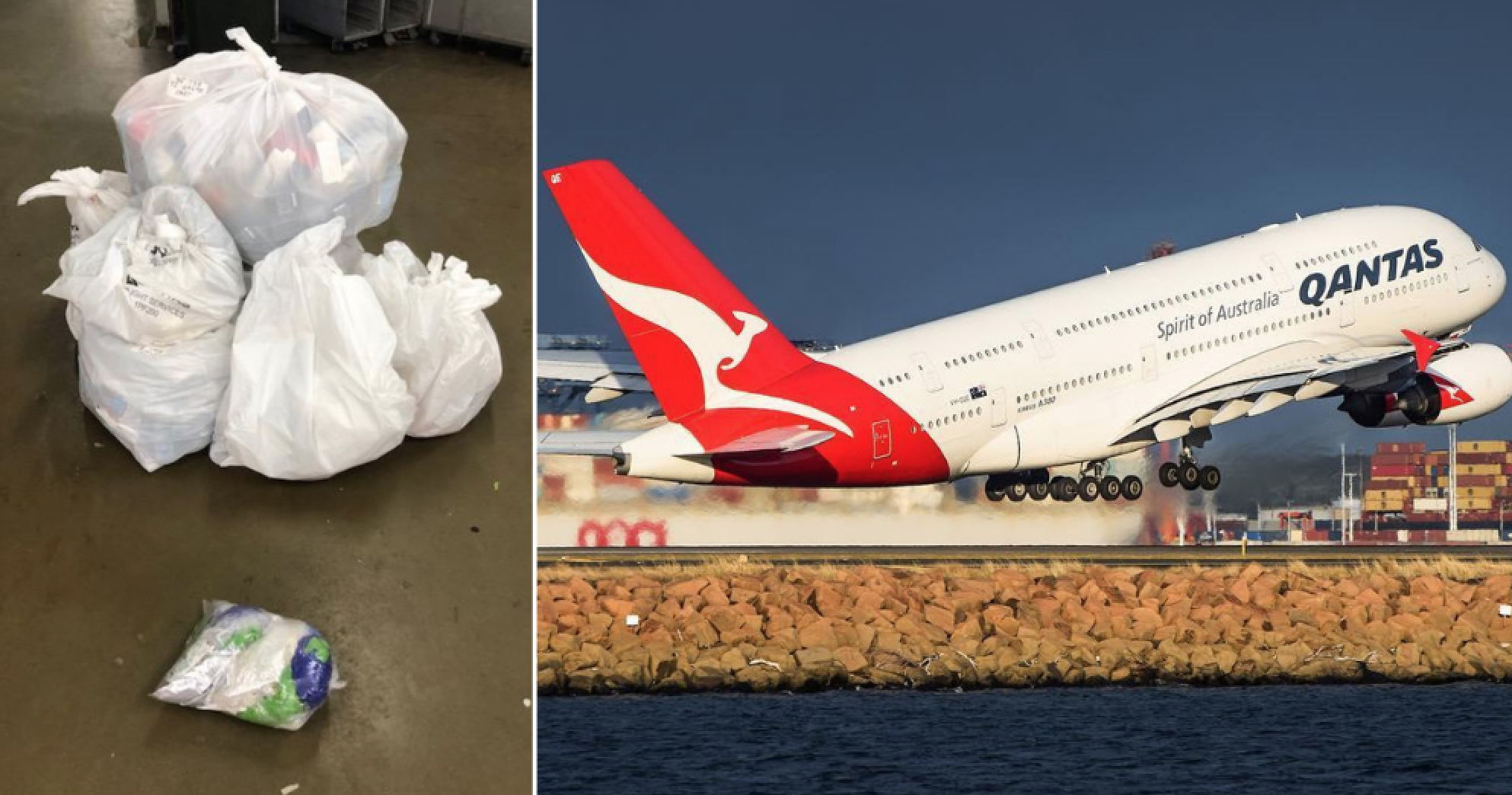Anyone who has been on an airplane would be familiar with the amount of disposable packaging used.
Things like blankets, tissues, and snacks are wrapped in plastic. Meals and cutlery come in plastic packaging as well.
And all of this is mainly due to the space and storage constraints of a small plane.
First ever zero waste flight
But one airline from Australia is breaking new ground by operating the first zero waste commercial flight in the world.
Qantas airplane QF739 departed Sydney for Adelaide on May 8, 2019, on a trial run as the world's first commercial flight that produces zero landfill waste.
According to Qantas, around 1,000 plastic items were either replaced with sustainable alternatives, or removed completely.
That includes individually packaged milk and Vegemite.
Meal containers made from sugarcane, and cutlery made from corn starch were also used, all of which are compostable.
All in-flight products were disposed of via recycling, composting or reusing.
Stark difference in the amount of trash reduced
And in a Facebook photo uploaded on June 5, Qantas revealed the results of its efforts in going green.
 Photo from Qantas / FB
Photo from Qantas / FB
The white bags of trash were generated from one of Qantas' usual flights, while the tiny transparent bag in the front was the amount of non-recyclable and non-compostable trash produced from the zero waste flight in May.
Clearly, the difference in the amount of trash generated is striking.
According to Qantas, the trash from the white bags would head straight to the landfill.
However, trash in the tiny bag would be reused as a substitute for fossil fuel to power cement kilns, ultimately making it a zero waste flight.
Qantas plans to eliminate 75 per cent of waste by 2021
According to Qantas domestic CEO Andrew David, the flight, which can hold 168 passengers, currently produces 34kg of waste on average—and the Sydney to Adelaide route produces 150,000kg of waste every year.
The transition to zero waste is hence part of the airline's plan to eliminate 75 per cent of its waste by the end of 2021.
Qantas also intends to remove 100 million single-use plastics every year by the end of 2020.
Not only is the flight removing single-use plastic items, passengers are also encouraged to switch to digital boarding passes and electronic bag tags instead of paper ones.
Any paper passes and tags used were disposed of sustainably by flight staff.
Additionally, all carbon emissions produced from the zero waste flight is reportedly 100 per cent offset.
This means that to compensate for the large amount of emissions generated from air travel, Qantas is investing in and supporting various forest conservation projects around the world to reduce an equal amount of emissions in those areas.
You can read Qantas' original Facebook post here:
Top photo from Qantas / FBIf you like what you read, follow us on Facebook, Instagram, Twitter and Telegram to get the latest updates.
